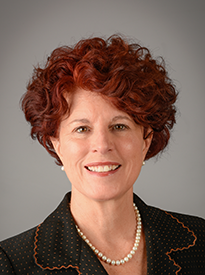
As we head into the holiday season and look forward to a brand new year, it’s a good time to take stock of the year that passed. Particularly, we should not forget the valuable lessons we learned during Covid.
In the darkest days of lockdown, with spending curtailed because there was nowhere to go and not much to do, we had an opportunity to slow down and reflect on how we spend our money and what makes us truly happy.
Many of my clients told me they had never saved so much and had decided that in the post-pandemic world, they would most likely revise their spending habits.
As one client said, “I didn’t realize I spend so much on restaurants. I don’t really miss eating out, so I won’t be spending as much in restaurants in the future.”
Your clients may feel the same. But other clients may be compensating for two years of forced savings by overspending this holiday season. You may want to determine which of your clients falls into the latter category and offer them gentle counsel, reminding them of the joys and benefits of simplicity.
Those can be difficult conversations, but there are ways to draw parallels to other areas of our lives. One of the main messages from my book, The Black Belt Investor, is about the importance of decluttering your life and your portfolio. For example, our environment can sap our energy and impede mental flow.
In a client webinar I hosted during the pandemic, I focused on the importance of having a home office that is organized and streamlined. There is often a natural resistance to working on one’s finances and investments, so dedicating a space to doing so that is inviting and promotes clear thinking is especially helpful. Less is more.
Sorting through statements and checking expenses can be overwhelming at the best of times, so putting guidelines in place for getting the job done goes a long way. For example, clients who overspend may simply be unaware of how much they are spending. Having a safe, clean space to analyze their finances may be the push they need to review their tendencies. As we begin 2022, we have an opportunity to act on our good intentions and establish habits that are foundational for building wealth.
Simplifying one’s life requires conviction and discipline. In my book, I quote the guru of grit, Angela Duckworth: “Without effort, your talent is nothing more than unrealized potential. Without effort, your competence is merely what you could have done, but did not do.”
In my own money management practice, I experimented with many investment styles over the years before adopting an ETF strategy following the great financial crisis. As I explained in my last article, I found the simple fact that most active managers do not outperform their benchmark index very compelling. From that point on, I worked with unwavering conviction to build a portfolio models based on an ETF strategy. I have never strayed from my core investment philosophy since.
Using ETFs has also simplified my portfolio management process, in part because the ETF strategies I use are easy to understand and explain to clients. In addition, ETFs are an investment tool that is well suited to situations where portfolio rebalancing is required to return to target client weightings. Also important, clients may feel less resistance to reviewing and working on their finances if they understand the investments they hold.
In my life and my portfolio, I am a firm believer that much can be accomplished when we take a long, hard look at what is meaningful. Slowing down will give you more time to achieve greater clarity, channel the emotions that serve you well and help you make better decisions regarding your financial future — and that of your clients.
